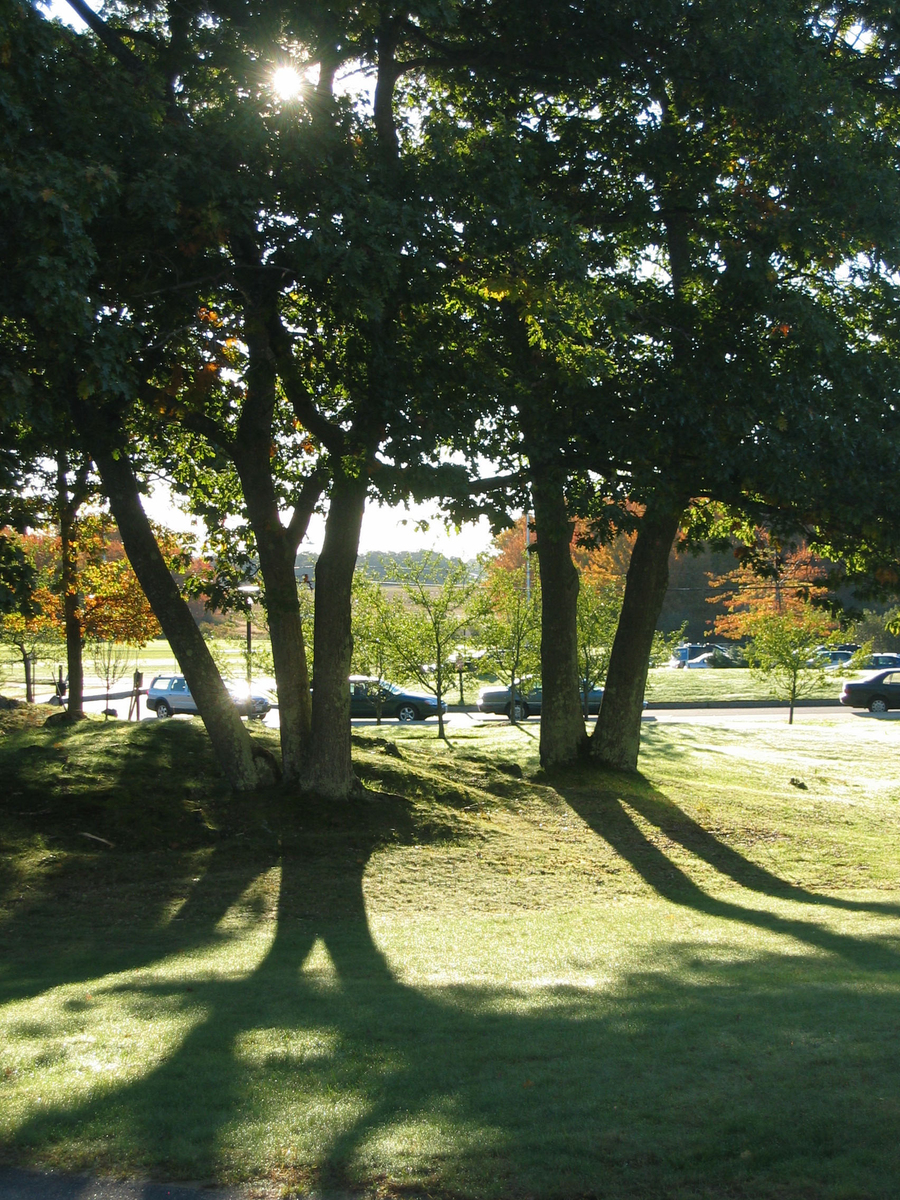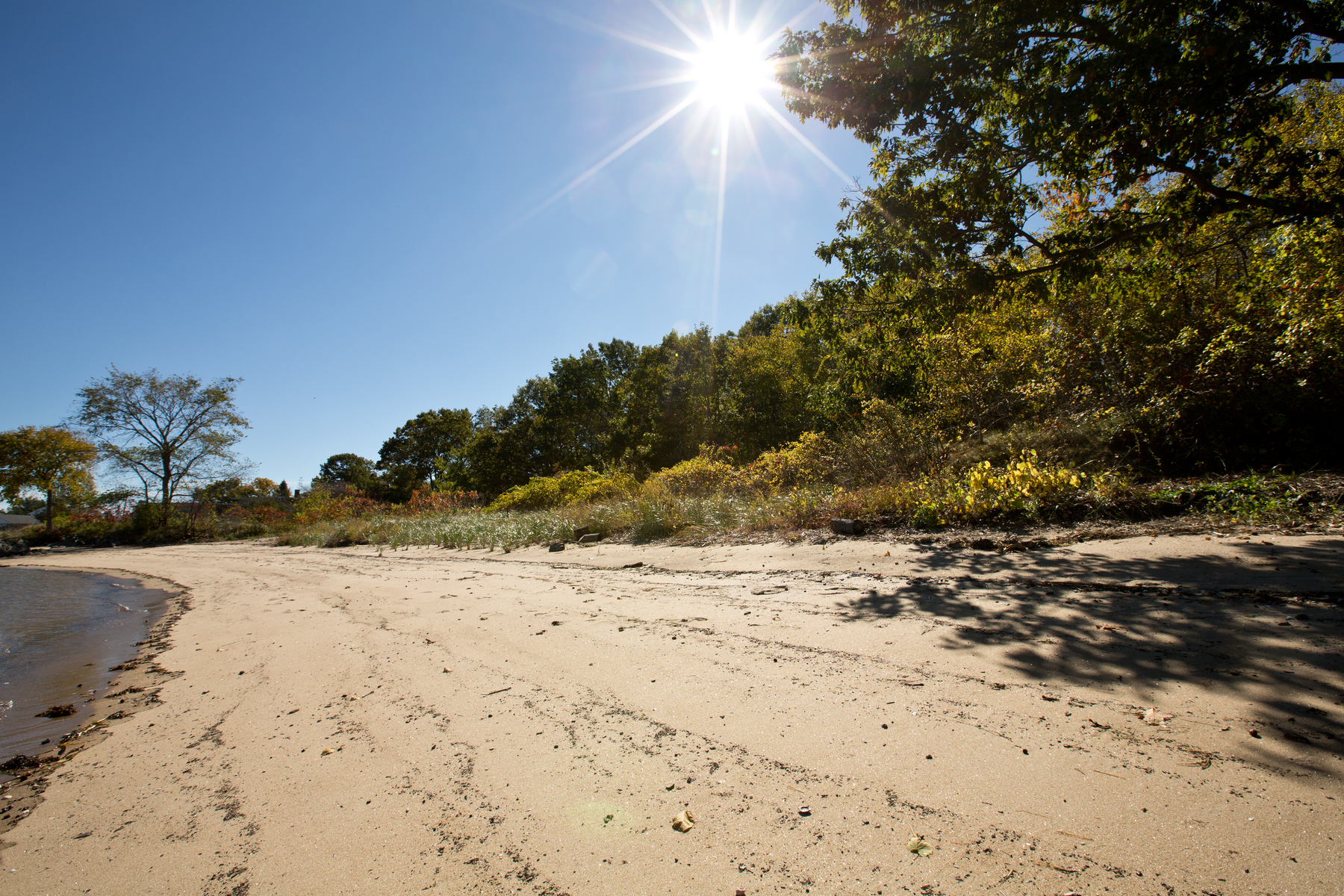Illuminating Students’ Way Back Home to UNE: Student Affairs Generates Connectivity During COVID-19 Outbreak

For much of the UNE community, reality seemed to change in the blink of an eye on March 13 when UNE President James Herbert announced that most undergraduate programming was going online and that resident students were being sent home as the result of the spreading coronavirus. While news of the decision could hardly be considered shocking, given that in the days prior, the higher education community saw more and more colleges and universities take this crucial step to stop the spread of COVID-19, it still felt like a freaky Friday-the-thirteenth light switch had just been flipped, and the UNE community was suddenly operating in an alternate universe.
Like a microcosm of the world, the university, with all its facets, faced unprecedented challenges as it figured out how to function in what we all have come to accept as the “new normal.” University employees began living in a world of in-betweens, where job goals remained the same but the methods employed to carry out those jobs entirely changed — a new reality that felt like navigating a well-known childhood home but doing so in the dark.
 One of the biggest challenges, of course, was figuring out how to transition classes online — and getting it done before the end of spring break. UNE’s Information Technology Services and its Center for Excellence in Teaching and Learning raced to provide online resources to faculty who had one week to move spring semester curriculum to a virtual format, and professors mobilized immediately to learn how best to deliver their courses.
One of the biggest challenges, of course, was figuring out how to transition classes online — and getting it done before the end of spring break. UNE’s Information Technology Services and its Center for Excellence in Teaching and Learning raced to provide online resources to faculty who had one week to move spring semester curriculum to a virtual format, and professors mobilized immediately to learn how best to deliver their courses.
Meanwhile, a parallel mission was being launched by Student Affairs to deal with the logistical nightmare and the immense sorrow involved in the move-out of 1,300 residential students. But as the deadline approached for all students (except those granted an exception through the appeals process) to vacate the residence halls, Student Affairs had yet another switch to pull. After working so hard to assist students in moving out, staff then had to do an immediate gear shift in order to keep those students connected — connected to UNE, to one another, and to their classes — and they had to forge and nurture these connections from afar.
“It’s very similar to what the faculty have experienced — this sort of instantaneous hustle with which everyone has to perform their job because we want to try to keep as much of a continuity of service as possible,” says Jennifer DeBurro, M.Ed., dean of students and assistant provost for Student Affairs.
According to DeBurro, the best way to assess how students are doing is with one-on-one check-ins. UNE’s area coordinators, staff members who normally live in the residence halls with the students, are now reaching out individually to students via phone and email to find out how they are coping and to discuss the challenges that the students are facing. The area coordinators then report back to DeBurro and others, allowing them to keep a pulse on the study body. It is critical work, says area coordinator Nicole Taylor. “It is crucially important that we put our best effort forward right now in connecting with our students,” she explains. “In a world where face-to-face contact is already dwindling or not as appreciated, it feels like an incredible loss not having the students here because now we are solely relying on phone calls, emails, and social media.”
It is crucially important that we put our best effort forward right now in connecting with our students. In a world where face-to-face contact is already dwindling or not as appreciated, it feels like an incredible loss not having the students here .” — Nicole Taylor, B.A., M.S., Area Coordinator, Office of Housing and Residential/Commuter Life, Student Affairs
In addition to being a resource for the students — someone who can answer questions on everything from meal refunds to the impact on work study programs — the area coordinators are also a sounding board for students’ fears, frustrations, and sadness. “Staying connected is not just about saying hello,” says Taylor. “For us, it means a lot more. The area coordinators are still here, serving our students and adhering to our ‘high touch’ approach, which essentially means being invested in our students and their overall well-being … We care about these students, and even though they are not physically here, they are still our first priority.”
 The student response to the check-ins has been overwhelmingly positive. Taylor reports that students are extremely appreciative and sometimes even taken aback by the gesture. “One student said, ‘Oh, wow, that is why you called? I thought I forgot to do something. That is really nice. Thank you!’”
The student response to the check-ins has been overwhelmingly positive. Taylor reports that students are extremely appreciative and sometimes even taken aback by the gesture. “One student said, ‘Oh, wow, that is why you called? I thought I forgot to do something. That is really nice. Thank you!’”
“I think some students were not expecting that level of outreach,” Taylor says, “but for us, it’s a no-brainer.”
DeBurro says the feedback that the area coordinators can provide after speaking with the students is priceless, as these professional staff members serve as windows through which she can see the measures needed to best assist students with their struggles. Some problems, though, are harder to remedy than others.
“Every student is experiencing some kind of loss, and that common issue is hard to resolve,” comments Taylor. “The only thing we can do is validate how they are feeling, offer our help where applicable, and, for those who are returning in the fall, we can help them look forward to the next year.”
Staying connected is not just about saying hello. For us, it means a lot more. We care about these students, and even though they are not physically here, they are still our first priority.” — Nicole Taylor, B.A., M.S., Area Coordinator, Office of Housing and Residential/Commuter Life, Student Affairs
But while there is no one-size-fits-all Band-Aid to help students in processing the lack of closure, there are some, more reparable problems that Student Affairs staff feel they can help with. DeBurro says that one of the biggest sources of anxiety for students right now is the concern that they are not extracting everything they need out of their educations. “The inability to focus and the concern about the quality of education that the lack of focus generates is one thing that’s sitting at the tops of people’s minds right now,” she says. “When a younger sibling comes walking through the door and interrupts students in the middle of an online class, for example, students worry about whether or not they’re going to get from this everything they need.”
DeBurro is quick to point out the difference between conventional online learning and the type of online learning that traditional students are now facing. “With conventional online learning, people sign up for that. They are able to create a schedule for themselves and craft an environment that is conducive to it. It’s different from what our students have been thrust into – this virtual learning, which is totally different. They didn’t have a chance to plan for this,” she laments.
So while frustrations are to be expected, Student Affairs staff are doing everything in their power to encourage students who are feeling a bit lost in virtual classes to speak up to their instructors. “We’re coaching students on the importance of communicating and being honest with faculty,” DeBurro says. “They need to be able to give their faculty a heads up and an opportunity to troubleshoot with them. We’ve always done some degree of coaching for students, but now there is this new layer about instructing them in how they can advocate for themselves to make sure they’re getting what they need out of the educational experience.”
DeBurro says it could be as simple as asking a faculty member to encourage students to use the raise-your-hand function in a webinar so students don’t become flustered as they rapidly type out a question in the chat box only to have the professor move on to another topic. Student Affairs addresses issues like this with a two-pronged approach, urging students to speak up to their professors when something isn’t working for them and by taking these concerns back to the faculty so they are aware of the problem.
 But what about students who never identify their problems? Fortunately, the Student Success Team, headed by Dennis Leighton, PT, D.P.T., associate provost for student success, brings together professional staff from Student Affairs, Academic Advising, Athletics, the Student Academic Success Center, the Office of Housing and Residential/Commuter Life, the First Year Experience, and the deans offices from the College of Arts and Sciences and the Westbrook College of Health Professions on a regular basis to share notes on students whom they are concerned about and to implement strategies to assist those students.
But what about students who never identify their problems? Fortunately, the Student Success Team, headed by Dennis Leighton, PT, D.P.T., associate provost for student success, brings together professional staff from Student Affairs, Academic Advising, Athletics, the Student Academic Success Center, the Office of Housing and Residential/Commuter Life, the First Year Experience, and the deans offices from the College of Arts and Sciences and the Westbrook College of Health Professions on a regular basis to share notes on students whom they are concerned about and to implement strategies to assist those students.
DeBurro feels that Student Affairs can play an important role in connecting with struggling students well before they end up on the Student Success Team’s case list, however. And sometimes, she says, that requires her and her staff to get creative. They are currently planning a “DIY With the Dean” which will either run on Facebook Live or Zoom. “It will be just a sort of kitschy, fun do-it-yourself project with me that folks can do at home with stuff that they might have around the house,” explains DeBurro, who is not giving away what the activity will be.
What is becoming abundantly clear to me right now is that the students who are good at advocating for themselves, the families who are good at asking the questions are all asking the questions. The people I’m most worried about are the ones who are less inclined to show up and do that advocating. So part of our challenge is figuring out how we build these low-risk opportunities for students to emerge and say, ‘Hey, this is what I need right now.’ ” — Jennifer DeBurro, M.Ed., Dean of Students and Assistant Provost for Student Affairs
She says that making herself visible in a fun, lighthearted manner can give students an unintimidating way to get to know her better and perhaps feel comfortable asking the questions that are on their minds. “What is becoming abundantly clear to me right now is that the students who are good at advocating for themselves, the families who are good at asking the questions are all asking the questions. The people I’m most worried about are the ones who are less inclined to show up and do that advocating,” she warns. “So part of our challenge is figuring out how we build these low-risk opportunities for students to emerge and say, ‘Hey, this is what I need right now.’”
Struggles among UNE students to adjust to the “new normal” are by no means restricted to the undergraduate student population. “Graduate and professional students have very different needs than the undergrads but are, unfortunately, sometimes viewed as self-sufficient,” says Ray Handy, M.S., CAGS, associate dean of students in the Office of Graduate and Professional Student Affairs. Handy says that efforts to perform check-ins on students have been launched in his office as well, with a special focus on UNE’s 50-plus student employees. Unlike federal work study students who will continue to receive funding even though their jobs have been curtailed, student employees — and on the Portland Campus, that is mostly graduate students — do not have the same safety net. In addition, many graduate students work off-campus in service positions and have been laid off due to the coronavirus. “Many of them rely on this income to assist in rent and food purchases,” says Handy. “Stress is high for these students and continues to rise.” The Graduate and Professional Student Association continues to provide assistance in the form of grocery gift cards, and Handy’s office works with UNE’s Office of Institutional Advancement to disperse student emergency funds when appropriate.
In addition to making one-on-one connections with students, Student Affairs also has impressive efforts underway to keep both the undergraduate and graduate populations connected to UNE and to their fellow students. “There are these individualized points of connection that we’re trying to engage through student check-ins,” explains DeBurro, “but there are also efforts to build and maintain our sense of community.” The Office of Student Engagement, headed by director Jay Arcuri, has created a weekly newsletter, the EZ Breeze, to keep undergraduates abreast of a slew of virtual programs. The newsletter advertises events aimed to distract and entertain, such as Netflix Party Movie Night, Virtual Trivia Nights, and online bingo, as well as a social media engagement calendar that boasts Punday Mondays, Wondering Wednesdays (showcasing virtual museum tours), and Friendly Fridays (to encourage the sharing of pet photos). The Office of Graduate and Professional Affairs is in on the “distraction action” too, issuing weekly emails to students with links to videos, virtual tours, recipes, quotes, Zen moments, and even children’s activities.
When I log on, and I see a couple hundred other people who’ve logged on at the same time, I’m reminded that I’m one in a community and that a community of people exists out there, even though I might be feeling really isolated right now.” — Jennifer DeBurro, M.Ed., Dean of Students and Assistant Provost for Student Affairs
While such things may seem trivial, especially in the midst of a pandemic, sometimes it is the most frivolous activities that do the best job at keeping people connected. The first virtual bingo night brought 200 students together, and numbers like that are important, says DeBurro. “When I log on, and I see a couple hundred other people who’ve logged on at the same time, I’m reminded that I’m one in a community and that a community of people exists out there, even though I might be feeling really isolated right now,” she reasons.
 Arcuri agrees and further notes that the advantages of student engagement extend far beyond the emotional benefits. “We know that the more connected and engaged students are on campus, the better they perform academically. So, in this new virtual environment, it’s just as important that we maintain this engagement — just through virtual models,” he says.
Arcuri agrees and further notes that the advantages of student engagement extend far beyond the emotional benefits. “We know that the more connected and engaged students are on campus, the better they perform academically. So, in this new virtual environment, it’s just as important that we maintain this engagement — just through virtual models,” he says.
And just like during “normal” times on campus, not all student activities are designed solely for entertainment, and some are simply virtual versions of previously planned in-person activities. For example, the Global Education Program Office is collaborating with Jimmy Riley, M.S.Ed., coordinator of the First Year Experience in Student Affairs, to host a virtual study abroad panel in which 10 UNE students who completed a semester-long study abroad program will hold a virtual question and answer session for students interested in global travel.
We know that the more connected and engaged students are on campus, the better they perform academically. So, in this new virtual environment, it’s just as important that we maintain this engagement – just through virtual models.” — Jay Arcuri, Director of Student Engagement
Perhaps not surprisingly, much of the informative virtual programming available to students focuses on the transition to life during a pandemic. Undergraduates were recently invited to a workshop titled “Structure and Scheduling at Home” to learn tips on adapting to online learning, while graduate students had the opportunity to attend a virtual social with UNE’s Career Services to discuss job searching amidst the coronavirus outbreak.
Student Affairs is also working diligently for both undergraduates and graduate students to assist in keeping student clubs and organizations as functional as possible during these difficult times, even offering a Zoom workshop, titled “Keeping Up Your Club Involvement and Staying Engaged,” and a training for organizational officers on how to conduct club elections through a virtual format.
“We want students to know that we are here for them and have resources available so they are able to continue meeting with their clubs,” shares Jamie Small, coordinator of student activities and organizations. “Supporting students so they are able to feel that connection to campus during a time when we are social distancing is at the forefront of what we are trying to accomplish.”
Another major component of Student Affairs’ outreach during the pandemic, in addition to individual points of contact and community building, is the promotion of student wellness. “If we were to talk about this as a three-legged stool,” Deburro says, “that third leg is making sure that folks are adhering to good wellness practices. We’re addressing the need for people to stay well in the midst of the isolation that they might be feeling”
We need students to realize that although you’re far away from us, your family is still here. We’re still here to show up for you and support you.” — Jennifer DeBurro, M.Ed., Dean of Students and Assistant Provost for Student Affairs
Student Affairs staff members from Student Wellness unit are working collaboratively across campuses through a variety of platforms to creatively encourage exercise and healthy habits while stay-at-home orders are in place. All fitness center services, including fitness assessments, exercise prescriptions, and training continue to be provided, albeit in a modified format, through Zoom; and social media is serving as a vehicle to share workouts, nutrition and cooking tips, and links to credible companies and professionals that are providing wellness services. Finley Recreation Center’s Student Fitness Challenge, which enables students to log the amount of time they have exercised in order to compete for prizes, forges ahead, and even the student Olympics was held virtually.
 Whether it’s through a phone call from an area coordinator, an online bingo match with fellow students, or social media posts offering a recipe of the day, more than anything, Student Affairs wants students to know that UNE is here for them even if they are not here at UNE. “We can no longer just walk through the dining hall or a residence hall and make that connection with students,” says DeBurro. “We can’t show up at the gym and have that kinship that you experience just by sharing space with people. So we have to take a very thoughtful approach that keeps people connected and engaged. We need students to realize that although you’re far away from us, your family is still here. We’re still here to show up for you and support you.”
Whether it’s through a phone call from an area coordinator, an online bingo match with fellow students, or social media posts offering a recipe of the day, more than anything, Student Affairs wants students to know that UNE is here for them even if they are not here at UNE. “We can no longer just walk through the dining hall or a residence hall and make that connection with students,” says DeBurro. “We can’t show up at the gym and have that kinship that you experience just by sharing space with people. So we have to take a very thoughtful approach that keeps people connected and engaged. We need students to realize that although you’re far away from us, your family is still here. We’re still here to show up for you and support you.”
DeBurro’s words are a reminder that while we, as an entire world, feel our way through the darkness that the pandemic has brought, we can forge and nurture connections with our loved ones that are even more radiant and robust than those which physical proximity enables. And even though, as a university, we may have bumped into a few walls and stubbed a toe or two since that March 13 switch was pulled, UNE’s top priority has always been, and will continue to be, keeping a light on for our students.